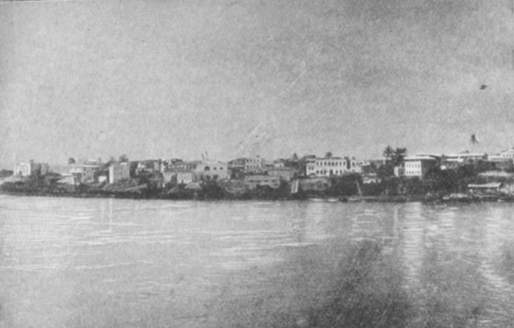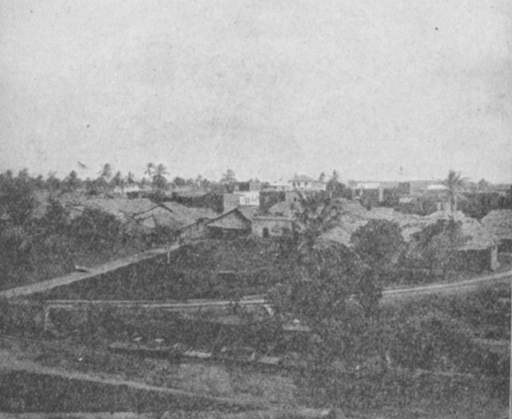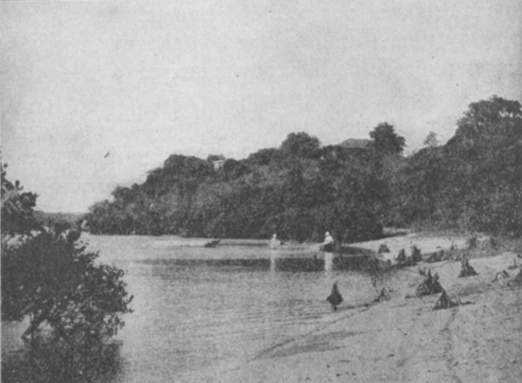Man Eaters Of Tsavo - By J H Patterson
Man Eaters of Tsavo - by J H Patterson
Man Eaters Of Tsavo - By J H Patterson
THE MAN-EATERS OF TSAVO
AND
Other East African Adventures
BY
Lieut.-Col. J. H. Patterson, D.S.O.
WITH A FOREWORD BY
FREDERICK COURTENEY SELOUS
WITH ILLUSTRATIONS
MACMILLAN AND CO., LIMITED
ST. MARTIN'S STREET, LONDON
1919
COPYRIGHT.
First Edition, 8vo, October 1907.
Reprinted, November and December, 1907; January and December,
1908, 1909; January, April, and August, 1910, 1914; Glove 8vo, 1911,
1912, 1913, 1914, 1917, 1919,
PREFACE
IT is with feelings of the greatest diffidence that I place the following pages before the public; but those of my friends who happen to have heard of my rather unique experiences in the wilds have so often urged me to write an account of my adventures, that after much hesitation I at last determined to do so.
I have no doubt that many of my readers, who have perhaps never been very far away from civilisation, will be inclined to think that some of the incidents are exaggerated. I can only assure them that I have toned down the facts rather than otherwise, and have endeavoured to write a perfectly plain and straightforward account of things as they actually happened.
It must be remembered that at the time these events occurred, the conditions prevailing in British East Africa were very different from what they are to-day. The railway, which has modernised the aspect of the place and brought civilisation in its train, was then only in process of construction, and the country through which it was being built was still in its primitive savage state, as indeed, away from the railway, it still is.
If this simple account of two years' work and play in the wilds should prove of any interest, or help even in a small way to call attention to the beautiful and valuable country which we possess on the Equator, I shall feel more than compensated for the trouble I have taken in writing it.
I am much indebted to the Hon. Mrs. Cyril Ward, Sir Guilford Molesworth, K.C.I.E., Mr. T.J. Spooner and Mr C. Rawson for their kindness in allowing me to reproduce photographs taken by them. My warmest thanks are also due to that veteran pioneer of Africa, Mr. F.C. Selous, for giving my little book so kindly an introduction to the public as is provided by the "Foreword" which he has been good enough to write.
J.H.P.
August, 1907.
FOREWORD
IT was some seven or eight years ago that I first read, in the pages of The Field newspaper, a brief account written by Col. J.H. Patterson, then an engineer engaged on the construction of the Uganda Railway, of the Tsavo man-eating lions.
My own long experience of African hunting told me at once that every word in this thrilling narrative was absolutely true. Nay more: I knew that the author had told his story in a most modest manner, laying but little stress on the dangers he had run when sitting up at nights to try and compass the death of the terrible man-eaters, especially on that one occasion when whilst watching from a very light scaffolding, supported only by four rickety poles, he was himself stalked by one of the dread beasts. Fortunately he did not lose his nerve, and succeeded in shooting the lion, just when it was on the point of springing upon him. But had this lion approached him from behind, I think it would probably have added Col. Patterson to its long list of victims, for in my own experience I have known of three instances of men having been pulled from trees or huts built on platforms at a greater height from the ground than the crazy structure on which Col. Patterson was watching on that night of terrors.
From the time of Herodotus until to-day, lion stories innumerable have been told and written. I have put some on record myself. But no lion story I have ever heard or read equals in its long-sustained and dramatic interest the story of the Tsavo man-eaters as told by Col. Patterson. A lion story is usually a tale of adventures, often very terrible and pathetic, which occupied but a few hours of one night; but the tale of the Tsavo man-eaters is an epic of terrible tragedies spread out over several months, and only at last brought to an end by the resource and determination of one man.
It was some years after I read the first account published of the Tsavo man-eaters that I made the acquaintance of President Roosevelt. I told him all I remembered about it, and he was so deeply interested in the story -- as he is in all true stories of the nature and characteristics of wild animals -- that he begged me to send him the short printed account as published in The Field. This I did; and it was only in the last letter I received from him that, referring to this story, President Roosevelt wrote: "I think that the incident of the Uganda man-eating lions, described in those two articles you sent me, is the most remarkable account of which we have any record. It is a great pity that it should not be preserved in permanent form." Well, I am now glad to think that it will be preserved in permanent form; and I venture to assure Col. Patterson that President Roosevelt will be amongst the most interested readers of his book.
It is probable that the chapters recounting the story of the Tsavo man-eating lions will be found more absorbing than the other portions of Col. Patterson's book; but I think that most of his readers will agree with me that the whole volume is full of interest and information. The account given by Col. Patterson of how he overcame all the difficulties which confronted him in building a strong and permanent railway bridge across the Tsavo river makes excellent reading; whilst the courage he displayed in attacking, single-handed, lions, rhinoceroses and other dangerous animals was surpassed by the pluck, tact and determination he showed in quelling the formidable mutiny which once broke out amongst his native Indian workers.
Finally, let me say that I have spent the best part of two nights reading the proof-sheets of Col. Patterson's book, and I can assure him that the time passed like magic. My interest was held from the first page to the last, for I felt that every word I read was true.
F. C. SELOUS.
WORPLESDON, SURREY.
September 18, 1907.
CONTENTS
 MOMBASA, FROM THE HARBOUR. |
THE MAN-EATERS OF TSAVO
CHAPTER I
 THE NATIVE QUARTER, MOMBASA. |
The harbour was plentifully sprinkled with Arab dhows, in some of which, I believe, even at the present day, a few slaves are occasionally smuggled off to Persia and Arabia. It has always been a matter of great wonder to me how the navigators of little vessels find their way from port to port, as they do, without the aid of either compass or sextant, and how they manage to weather the terrible storms that at certain seasons of the year suddenly visit eastern seas. I remember once coming across a dhow becalmed in the middle of the Indian Ocean, and its crew making signals of distress, our captain slowed down to investigate. There were four men on board, all nearly dead from thirst; they had been without drink of any kind for several days and had completely lost their bearings. After giving them some casks of water, we directed them to Muscat (the port they wished to make), and our vessel resumed its journey, leaving them still becalmed in the midst of that glassy sea. Whether they managed to reach their destination I never knew.
 "WELL-WOODED HI Last updated: 26th September 2019 by Free |



